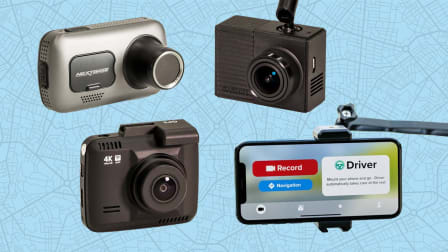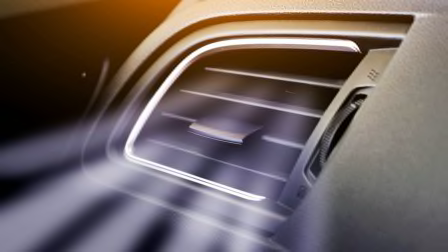How to Get the Most Out of Your Car's Heater
Tips on how to warm up in a hurry

Few things are as cold as a car on a winter morning. Thawing that chill takes more than just warming the engine up. It requires an understanding of how to set the climate control system appropriately. Beyond that, heated seats and a heated steering wheel can sure help.
For pro tips on warming up your car’s cabin, we turned to Jake Fisher, senior director of auto testing at Consumer Reports, who previously worked on climate (aka HVAC) systems for a major automaker.
Get the Car Moving
“Modern cars don’t need much to warm up before taking off, but it does take a long time for cars to warm up if they’re not moving,” says Fisher. “The sooner you move, the sooner the engine begins working, the sooner the engine starts creating heat that will warm the passengers.”
Don't Crank the Heat to 'High'
If your car has automatic climate control, you can set your system to the temperature you like, and the car will warm up just as quickly as if you crank the dial to maximum. It works just like the thermostat in your house: The system can sense the temperature of the air being blown into the cabin, and once the air coming out is hot enough, it will increase the fan speed. Cranking the temp and fan to high only results in passengers being force-fed a lot of cold air.
Keep the A/C On
To most people, A/C means cold air. But really, that button on your dash controls the air conditioning compressor, which performs a very important task when temperatures dip, namely dehumidifying the air. Shutting it off can cause the car’s windows to fog up. (Learn the fastest way to defog windows.)
Don't Use the Recirculation Mode
Intuitively, you may be tempted to push the “recirc” button to hoard the warmed cabin air, but you need fresh air in the cabin to keep those windows clear.
“We breathe out water vapor, and that can cause window fogging,” Fisher says. “The more people in the car, the worse it can get.”
Crack a Window
If you are carrying several passengers, you may find it difficult to keep the windows from fogging. When passengers exhale, more water vapor is released in the cabin, and that can cling to the windows, fogging them up. Cracking a window slightly can help keep them clear.
If the windows are heavily fogged, use the “Defrost” mode. This will automatically engage air conditioning and a high fan speed, directing warm, dry air to the windshield and often the front side windows.
Help Backseat Passengers
Although the driver may be comfortable with the heater set only to a low fan speed, that low setting may not provide enough airflow to warm people in the back. To help them, consider cranking up that fan, even if it means the driver will have to turn the temperature a little lower for comfort. That can help make sure everyone stays cozy.
Keep It as Warm as You Like
Some people don’t want to use the A/C a lot in the summer to save fuel (and by extension, money). The good news is, in the winter, the heat is free (unless you have an electric car).
“The heat is generated by the engine, and if you don’t use it, it’s just going to get dumped through the radiator,” Fisher says. “You might as well enjoy it.”



















